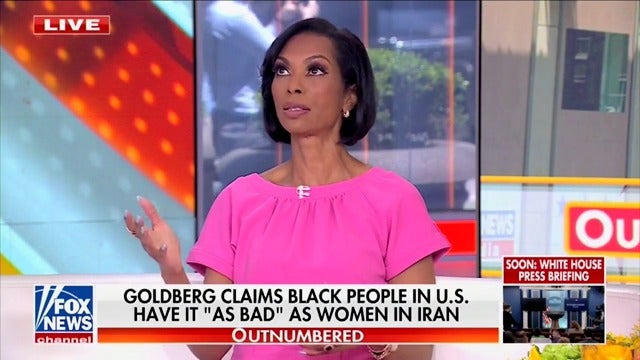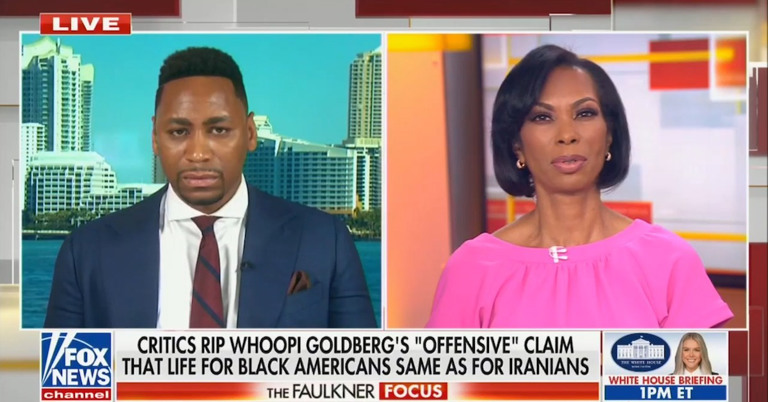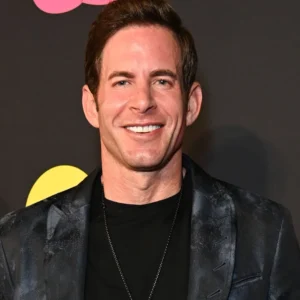Harris Faulkner of Fox News Criticizes Whoopi Goldberg as “Ignorant” Following Whoopi’s Recent String of Controversial Remarks

In a strikingly candid episode of “The Faulkner Focus,” Harris Faulkner, a prominent Fox News host, directed her ire toward Whoopi Goldberg over a series of controversial remarks made during a recent broadcast of “The View.” Faulkner characterized Goldberg’s comments as “ignorant” and “asinine,” particularly focusing on a comparison Goldberg drew between the experiences of being Black in America and living in Iran amid ongoing geopolitical tensions.
Faulkner, who shares the experience of being a successful Black woman in America with Goldberg, strongly objected to the latter’s analogy. She articulated that such comparisons trivialize the historical and current struggles faced by marginalized communities, especially given the context of significant progress in the United States. “We know where we have been,” Faulkner asserted, referencing Juneteenth and highlighting the strides that have been made in the fight against racial injustice.
Understanding the Context: Black Life in America vs. Iran

During the dialogue on “The Faulkner Focus,” Faulkner underscored the stark differences between the experiences of Black Americans and those who endure hardships under the Iranian regime. She argued that the conditions in Iran are vastly different from life in the United States, where systemic issues, while significant, do not equate to living under a totalitarian government that oppresses its citizens in unimaginable ways.
Commentator Alyssa Farah Griffin, Faulkner’s co-host, joined the conversation, amplifying Faulkner’s points by stating that there are considerably more severe conditions affecting individuals in other parts of the globe. Griffin’s insights invited Goldberg to reconsider the realities faced by millions in authoritarian societies, highlighting a need for broader awareness and sensitivity in public discussions about race and international issues.
The Media’s Role in Shaping Conversations About Race

The fallout from this incident includes reactions from various Fox News personalities, with Sean Hannity also expressing indignation over Goldberg’s comments. He voiced a sentiment shared by many in the conservative media, suggesting a desire to move past such remarks that he felt were misleading or damaging. Faulkner echoed this discontent, concluding that Goldberg appeared out of step with contemporary realities, suggesting that her remarks not only misrepresented the situation but also undermined the hard-won progress achieved by Black Americans over the years.
This heated discourse exemplifies the ongoing debates surrounding race, media representation, and the complex landscape of American public consciousness regarding social justice. The remarks traded between figures like Faulkner and Goldberg offers a window into the intricate relationship between identity, experience, and the responsibilities of public figures in fostering informed dialogue.
Continuing the Conversation on Racial and Global Issues

As the conversation develops, it becomes increasingly evident that discussions around race and global affairs require not only awareness but also a sense of responsibility. The comparison drawn by Goldberg serves as a flashpoint for deeper exploration into how society examines its past, present, and future. Just as Faulkner called for recognition of both progress and persistent issues, empowering dialogue rooted in facts and sensitivity is vital for the evolution of the societal narrative on race.
Conclusion

This exchange illustrates the need for thoughtful engagement in the media and society at large about race and global dynamics. Whether you’re a viewer or a participant in these conversations, it is essential to stay informed and critical. Join the discussion and reflect on the complexity of these issues to ensure that all voices contribute meaningfully to this critical dialogue.






